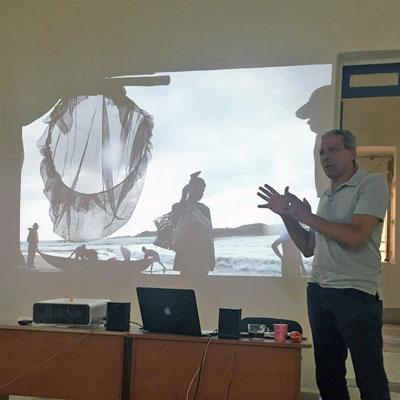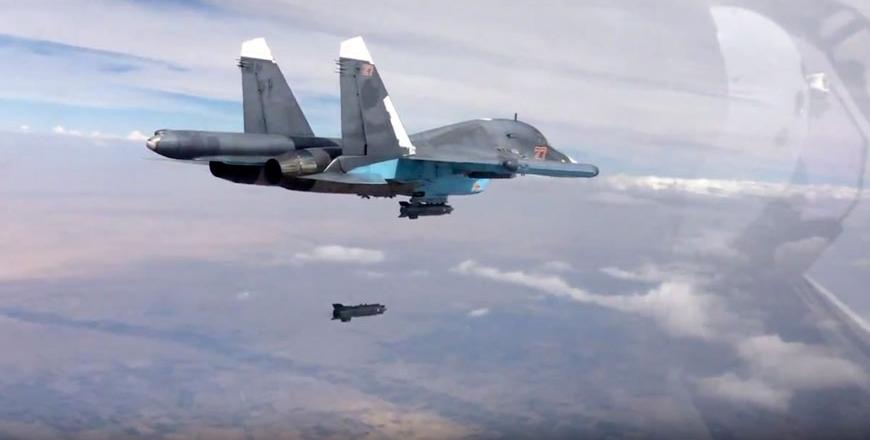You are here
US photojournalist ‘in awe’ of young photographers as they brave regional conflict
By Muath Freij - May 08,2016 - Last updated at May 08,2016

Photojournalist Ed Kashi discusses one of his photos in Amman recently (Photo courtesy of Image Festival)
AMMAN — In a region ravaged by conflict and displacement, ordinary citizens have taken on the mantle of photojournalism, learning the profession in its purest form on the ground and using it to make their plight known, according to a veteran US photographer.
Internationally recognised photographer Ed Kashi told The Jordan Times in a recent interview that these young Arab photographers never cease to amaze him, as they are learning their job in a very tough situation.
The photojournalist, filmmaker and educator, who focuses on documenting current social and political issues, said Jordan is a difficult place for photojournalism and documentary filmmaking.
“Because there is no market to sell your work, the average Jordanian photographer must rely on commercial work and other kinds of work, but I urge people to have the spirit and the desire to [practise] photojournalism,” Kashi added.
Kashi was in Jordan to present his project “Syrian Refugees” as part of the Image Festival, which concluded late last month.
The photographer said sharing his work in Jordan holds a "special meaning", because he produced "much of the work here" and because Jordanians are personally affected by the refugee issue.
"The world needs to understand Jordan’s role," Kashi added, noting that the Kingdom has done "a very good job" taking care of refugees.
In his project on refugees, the photojournalist said he wanted to focus on young Syrians who have been robbed of their youth in this ongoing conflict.
"It is so dangerous when young men have no hopes," Kashi said, noting that they "may fall into bad ways”.
He spent two weeks working on the project in Jordan and Iraq.
The Syrian refugee crisis is "the most dramatic situation" since World War II, the photographer said.
Looking beyond its immediate impact, he affirmed that "there will be a need for a great capacity of forgiveness”.
Related Articles
MOSCOW — Russian President Vladimir Putin and his circle have spent years criticising what they said was Washington's calamitous 2003 milita
AMMAN — A month ago, Semhal Tsegaye, an Amman-based amateur photojournalist, was scrolling through Facebook when she learned about Women Pho
SHARJAH – In an era where photography remains a powerful tool for documenting and holding the powerful accountable, the ninth edition of the



















